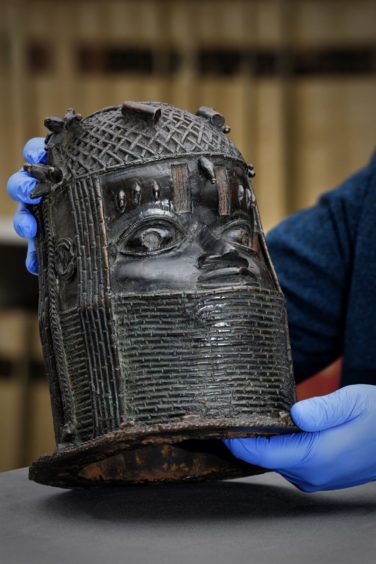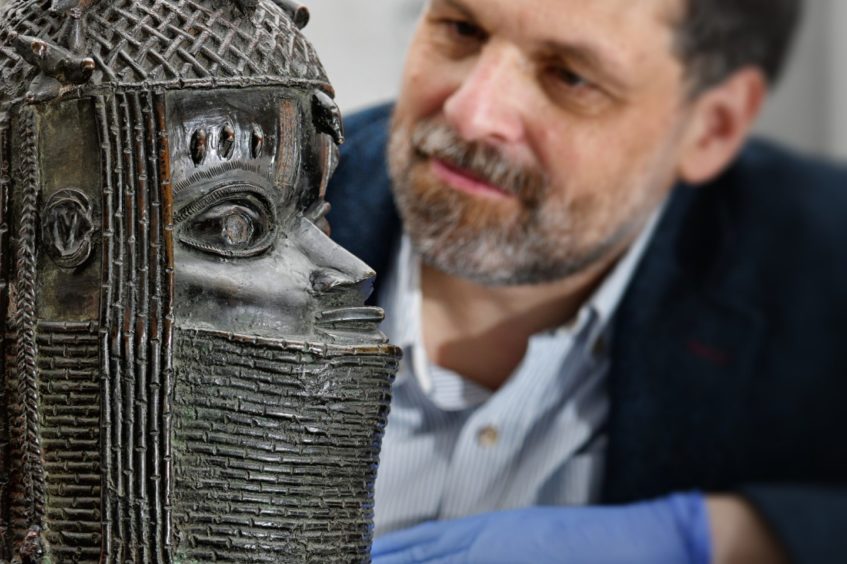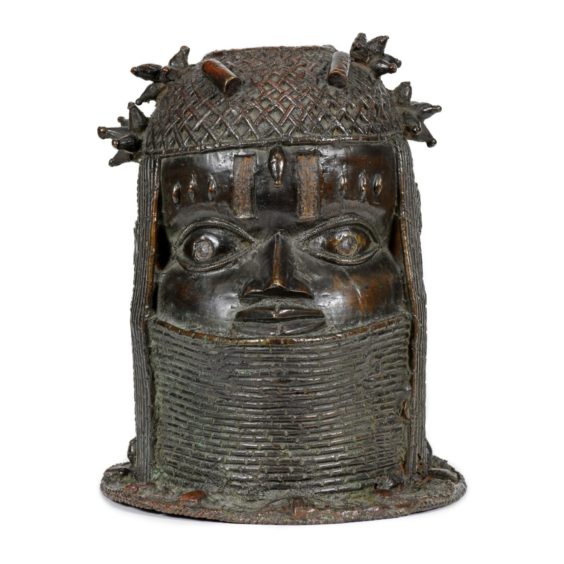Aberdeen University is to return a sculpture taken from Nigeria by the British military more than 120 years ago.
The bronze effigy depicts an Oba or king of Benin and it was acquired by the Granite City institution at an auction in 1957.
Thousands of metal and ivory sculptures and carvings were looted by British forces in 1897 during the destruction of Benin City in present-day Nigeria by a British military expedition.
Many of the soldiers and administrators involved sold Benin objects to museums or private collectors. Others were later given as gifts to museums or sold at auction or by art dealers.
Aberdeen University bosses were involved in talks with the Nigerian government about the sculpture’s return and now it is the first institution to agree to the full repatriation from a museum of a Benin bronze.
Neil Curtis, head of museums and special collections said “Aberdeen University has previously agreed to repatriate sacred items and ancestral remains to Canada, Australia and New Zealand, and has a procedure that considers requests in consultation with claimants.
“An ongoing review of the collections identified the Head of an Oba as having been acquired in a way that we now consider to have been extremely immoral, so we took a proactive approach to identify the appropriate people to discuss what to do.”
An expert panel, including academic specialists and curators, as well as representatives of the university Court, the Hunterian Museum in the University of Glasgow and the Nigerian claimants, discussed the proposal in detail and unanimously recommended its return to Nigeria.
On Tuesday the University’s governing body supported the unconditional return of the Benin bronze to Nigeria.
Professor George Boyne, Principal and Vice-Chancellor of Aberdeen University said: “I welcome the decision of the University of Aberdeen Court to support the return of the Benin bronze. This is in line with our values as an international, inclusive university and our foundational purpose of being open to all and dedicated to the pursuit of truth in the service of others.
“It would not have been right to have retained an item of such great cultural importance that was acquired in such reprehensible circumstances. We therefore decided that an unconditional return is the most appropriate action we can take, and are grateful for the close collaboration with our partners in Nigeria.”
Professor Abba Issa Tijani, the director-general of the National Commission for Museums and Monuments, said: “The world looks forward to further release of other purloined Nigerian antiquities to the Nigerian nation. Not just Benin bronzes, but the Ife, Nok, Esie, Owo and other Nigerian ancient arts.
“We welcome collaborations and agreements of all sorts. We love the fact that others cherish these great art-works. International travelling exhibitions of these art-works is part of what we offer the world”.
Aberdeen University is now making practical arrangements for the return of the Head of an Oba, and collaborating in organising a celebratory event to mark its return home.
Benin City was the centre of a powerful and long-lasting kingdom in West Africa of the Edo people, renowned for its tradition of high-quality metalworking from at least the 17th century.
The expansion of British trade and colonial control in the later 19th century brought it into conflict with the kingdom of Benin, ultimately leading, in 1897, to the city being attacked and destroyed by a British military expedition, the “Benin Punitive Expedition”, with many inhabitants killed. The royal palace was burned and looted, and the Oba, Ovonramwen Nogbaisi, exiled.


